Exclusive: Official Washington’s many false narratives about Russia and Syria have gotten so tangled that they have become a danger to the struggle against Sunni jihadist terrorism and conceivably a threat to the future of the planet, a risk that Robert Parry explores.
By Robert Parry
Ex: http://www.consortiumnews.com
One way to view Official Washington is to envision a giant bubble that serves as a hothouse for growing genetically modified “group thinks.” Most inhabitants of the bubble praise these creations as glorious and beyond reproach, but a few dissenters note how strange and dangerous these products are. Those critics, however, are then banished from the bubble, leaving behind an evermore concentrated consensus.
This process could be almost comical – as the many armchair warriors repeat What Everyone Knows to Be True as self-justifying proof that more and more wars and confrontations are needed – but the United States is the most powerful nation on earth and its fallacious “group thinks” are spreading a widening arc of chaos and death around the globe.
We even have presidential candidates, especially among the Republicans but including former Secretary of State Hillary Clinton, competing to out-bellicose each other, treating an invasion of Syria as the least one can do and some even bragging about how they might like to shoot down a few Russian warplanes.
Though President Barack Obama has dragged his heels regarding some of the more extreme proposals, he still falls in line with the “group think,” continuing to insist on “regime change” in Syria (President Bashar al-Assad “must go”), permitting the supply of sophisticated weapons to Sunni jihadists (including TOW anti-tank missiles to Ahrar ash-Sham, a jihadist group founded by Al Qaeda veterans and fighting alongside Al Qaeda’s Nusra Front), and allowing his staff to personally insult Russian President Vladimir Putin (having White House spokesman Josh Earnest in September demean Putin’s posture for sitting with his legs apart during a Kremlin meeting with Israeli Prime Minister Benjamin Netanyahu).
Not surprisingly, I guess, Earnest’s prissy disapproval of what is commonly called “man spread” didn’t extend to Netanyahu who adopted the same open-leg posture in the meeting with Putin on Sept. 21 and again in last week’s meeting with Obama, who – it should be noted – sat with his legs primly crossed.
This combination of tough talk, crude insults and reckless support of Al Qaeda-connected jihadis (“our guys”) apparently has become de rigueur in Official Washington, which remains dominated by the foreign policy ideology of neoconservatives, who established the goal of “regime change” in Iraq, Syria and Iran as early as 1996 and haven’t changed course since. [See Consortiumnews.com’s “How Neocons Destabilized Europe.”]
Shaping Narratives
Despite the catastrophic Iraq War – based on neocon-driven falsehoods about WMD and the complicit unthinking “group think” – the neocons retained their influence largely through an alliance with “liberal interventionists” and their combined domination of major Washington think tanks, from the American Enterprise Institute to the Brookings Institution, and the mainstream U.S. news media, including The Washington Post and The New York Times.
This power base has allowed the neocons to continue shaping Official Washington’s narratives regardless of what the actual facts are. For instance, a Post editorial on Thursday repeated the claim that Assad’s “atrocities” included use of chemical weapons, an apparent reference to the now largely discredited claim that Assad’s forces were responsible for a sarin gas attack outside Damascus on Aug. 21, 2013.
After the attack, there was a rush to judgment by the U.S. State Department blaming Assad’s troops and leading Secretary of State John Kerry to threaten retaliatory strikes against the Syrian military. But U.S. intelligence analysts refused to sign on to the hasty conclusions, contributing to President Obama’s last-minute decision to hold off on a bombing campaign and to accept Putin’s help in negotiating Assad’s surrender of all Syrian chemical weapons (though Assad still denied a role in the sarin attack).
Subsequently, much of the slapdash case for bombing Syria fell apart. As more evidence became available, it increasingly appeared that the sarin attack was a provocation by Sunni jihadists, possibly aided by Turkish intelligence, to trick the United States into destroying Assad’s military and thus clearing the way for a Sunni jihadist victory.
We now know that the likely beneficiaries of such a U.S. attack would have been Al Qaeda’s Nusra Front and the spinoff known as the Islamic State (also called ISIS, ISIL or Daesh). But the Obama administration never formally retracted its spurious sarin claims, thus allowing irresponsible media outlets, such as The Washington Post, to continue citing the outdated “group think.”
The same Post editorial denounced Assad for using “barrel bombs” against the Sunni rebels who are seeking to overthrow his secular government, which is viewed as the protector of Syria’s minorities – including Christians, Alawites and Shiites – who could face genocide if the Sunni extremists prevail.
Though this “barrel bomb” theme has become a favorite talking point of both the neocons and liberal “human rights” groups, it’s never been clear how these homemade explosive devices shoved out of helicopters are any more inhumane than the massive volumes of “shock and awe” ordnance, including 500-pound bombs, deployed by the U.S. military across the Middle East, killing not only targeted fighters but innocent civilians.
Nevertheless, the refrain “barrel bombs” is accepted across Official Washington as a worthy argument for launching devastating airstrikes against Syrian government targets, even if such attacks clear the way for Al Qaeda’s allies and offshoots gaining control of Damascus and unleashing even a worse humanitarian cataclysm. [See Consortiumnews.com’s “Obama’s Ludicrous ‘Barrel Bomb’ Theme.”]
False-Narrative Knots
But it is now almost impossible for Official Washington to disentangle itself from all the false narratives that the neocons and the liberal hawks have spun in support of their various “regime change” strategies. Plus, there are few people left inside the bubble who even recognize how false these narratives are.
So, the American people are left with the mainstream U.S. news media endlessly repeating storylines that are either completely false or highly exaggerated. For instance, we hear again and again that the Russians intervened in the Syrian conflict promising to strike only ISIS but then broke their word by attacking Al Qaeda’s Nusra Front and “our guys” in Sunni jihadist forces armed by Saudi Arabia, Qatar, Turkey and the CIA.
Though you hear this narrative everywhere in Official Washington, no one ever actually quotes Putin or another senior Russian official promising to strike only at ISIS. In all the quotes that I’ve seen, the Russians refer to attacking “terrorists,” including but not limited to ISIS.
Unless Official Washington no longer regards Al Qaeda as a terrorist organization – a trial balloon that some neocons have floated – then the Putin-lied narrative makes no sense, even though every Important Person Knows It to Be True, including Obama’s neocon-leaning Defense Secretary Ashton Carter.
The U.S. political and media big shots also mock the current Russian-Iranian proposal for first stabilizing Syria and then letting the Syrian people decide their own leadership through internationally observed democratic elections.
Okay, you might say, what’s wrong with letting the Syrian people go to the polls and pick their own leaders? But that just shows that you’re a Russian-Iranian “apologist” who doesn’t belong inside the bubble. The Right Answer is that “Assad Must Go!” whatever the Syrian people might think.
Or, as the snarky neocon editors of The Washington Post wrote on Thursday, “Mr. Putin duly dispatched his foreign minister to talks in Vienna last weekend on a Syrian political settlement. But Moscow and Tehran continue to push for terms that would leave Mr. Assad in power for 18 months or longer, while — in theory — a new constitution is drafted and elections organized. Even a U.S. proposal that Mr. Assad be excluded from the eventual elections was rejected, according to Iranian officials.”
In other words, the U.S. government doesn’t want the Syrian people to decide whether Assad should be kicked out, an odd and contradictory stance since President Obama keeps insisting that the vast majority of Syrians hate Assad. If that’s indeed the case, why not let free-and-fair elections prove the point? Or is Obama so enthralled by the neocon insistence of “regime change” for governments on Israel’s “hit list” that he doesn’t want to take the chance of the Syrian voters getting in the way?
Reality Tied Down
But truth and reality have become in Official Washington something like Gulliver being tied down by the Lilliputians. There are so many strands of lies and distortions that it’s impossible for sanity to rise up.
Another major factor in America’s crisis of false narratives relates to the demonizing of Russia and Putin, a process that dates back in earnest to 2013 when Putin helped Obama sidetrack the neocon dream of bombing Syria and then Putin compounded his offense by assisting Obama in getting Iran to constrain its nuclear program, which derailed another neocon dream to bomb-bomb-bomb Iran.
It became ominously clear to the neocons that this collaboration between the two presidents might even lead to joint pressure on Israel to finally reach a peace agreement with the Palestinians, a possibility that struck too close to the heart of neocon thinking which, for the past two decades, has favored using “regime change” in nearby countries to isolate and starve Lebanon’s Hezbollah and Palestinian groups, giving Israel a free hand to do whatever it wished.
So, this Obama-Putin relationship had to be blown up and the point of detonation was Ukraine on Russia’s border. Official Washington’s false narratives around the Ukraine crisis are now also central to neocon/liberal-hawk efforts to prevent meaningful coordination between Obama and Putin in countering ISIS and Al Qaeda in Syria and Iraq.
Inside Official Washington’s bubble, the crisis in Ukraine is routinely described as a simple case of Russian “aggression” against Ukraine, including an “invasion” of Crimea.
If you relied on The New York Times or The Washington Post or the major networks that repeat what the big newspapers say, you wouldn’t know there was a U.S.-backed coup in February 2014 that overthrew the elected Ukrainian government of Viktor Yanukovych, even after he agreed to a European compromise in which he surrendered many powers and accepted early elections.
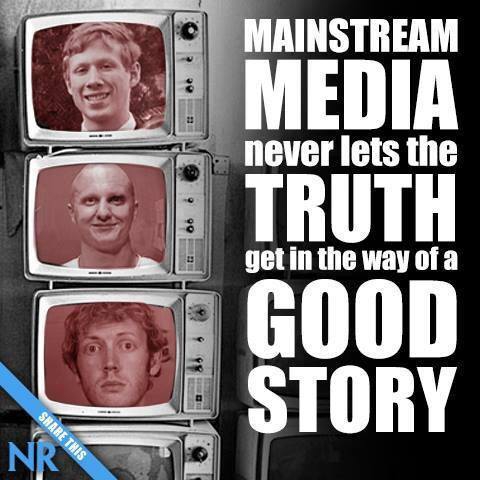
Instead of letting that agreement go forward, right-wing ultra-nationalists, including neo-Nazis operating inside the Maidan protests, overran government buildings in Kiev on Feb. 22, 2014, causing Yanukovych and other leaders to flee for their lives.
Behind the scenes, U.S. officials, such as neocon Assistant Secretary of State for European Affairs Victoria Nuland, had collaborated in the coup plans and celebrated the victory by Nuland’s handpicked leaders, including the post-coup Prime Minister Arseniy Yatsenyuk, whom she referred to in an earlier intercepted phone call as “Yats is the guy.”
Nor would you know that the people of Crimea had voted overwhelmingly for President Yanukovych and – after the coup – voted overwhelmingly to get out of the failed Ukrainian state and reunify with Russia.
The major U.S. news media twists that reality into a Russian “invasion” of Crimea even though it was the strangest “invasion” ever because there were no photos of Russian troops landing on the beaches or parachuting from the skies. What the Post and the Times routinely ignored was that Russian troops were already stationed inside Crimea as part of a basing agreement for the Russian fleet at Sevastopol. They didn’t need to “invade.”
And Crimea’s referendum showing 96 percent approval for reunification with Russia – though hastily arranged – was not the “sham” that the U.S. mainstream media claimed. Indeed, the outcome has been reinforced by various polls conducted by Western agencies since then.
The MH-17 Case
The demonization of Putin reached new heights after the July 17, 2014 shoot-down of Malaysia Airlines Flight 17 over eastern Ukraine killing all 298 people onboard. Although substantial evidence and logic point to elements of the Ukrainian military as responsible, Official Washington’s rush to judgment blamed ethnic Russian rebels for firing the missile and Putin for supposedly giving them a powerful Buk anti-aircraft missile system.
That twisted narrative often relied on restating the irrelevant point that the Buks are “Russian-made,” which was used to implicate Moscow but was meaningless since the Ukrainian military also possessed Buk missiles. The real question was who fired the missiles, not where they were made.
But the editors of the Post, the Times and the rest of the mainstream media think you are very stupid, so they keep emphasizing that the Buks are “Russian-made.” The more salient point is that U.S. intelligence with all its satellite and other capabilities was unable – both before and after the shoot-down – to find evidence that the Russians had given Buks to the rebels.
Since the Buk missiles are 16-feet-long and hauled around by slow-moving trucks, it is hard to believe that U.S. intelligence would not have spotted them given the intense surveillance then in effect over eastern Ukraine.

A more likely scenario of the MH-17 shoot-down was that Ukraine moved several of its Buk batteries to the frontlines, possibly fearing a Russian airstrike, and the operators were on edge after a Ukrainian warplane was shot down along the border on July 16, 2014, by an air-to-air missile presumably fired by a Russian plane.
But – after rushing out a white paper five days after the tragedy pointing the finger at Moscow – the U.S. government has refused to provide any evidence or intelligence that might help pinpoint who fired the missile that brought down MH-17.
Despite this remarkable failure by the U.S. government to cooperate with the investigation, the mainstream U.S. media has found nothing suspicious about this dog not barking and continues to cite the MH-17 case as another reason to despise Putin.
How upside-down this “Everything Is Putin’s Fault” can be was displayed in a New York Times “news analysis” by Steven Erlanger and Peter Baker on Thursday when all the “fundamental disagreements” between Obama and Putin were blamed on Putin.
“Dividing them are the Russian annexation of Crimea and its meddling in eastern Ukraine, Moscow’s efforts to demonize Washington and undermine confidence in NATO’s commitment to collective defense, and the Kremlin’s support of President Bashar al-Assad of Syria,” Erlanger and Baker wrote.
Helping ISIS
This tangle of false narratives is now tripping up the prospects of a U.S.-French-Russian-Iranian alliance to take on the Islamic State, Al Qaeda and other Sunni jihadist forces seeking to overthrow Syria’s secular government.
The neocon Washington Post, in particular, has been venomous about this potential collaboration which – while possibly the best chance to finally resolve the horrific Syrian conflict – would torpedo the neocons’ long-held vision of imposed “regime change” in Syria.
In editorials, the Post’s neocon editors also have displayed a stunning lack of sympathy for the 224 Russian tourists and crew killed in what appears to have been a terrorist bombing of a chartered plane over the Sinai in Egypt.
On Nov. 7, instead of expressing solidarity, the Post’s editors ridiculed Putin and Egyptian President Abdel Fattah el-Sisi for not rushing to a judgment that it was an act of terrorism, instead insisting on first analyzing the evidence. The Post also mocked the two leaders for failing to vanquish the terrorists.
Or as the Post’s editors put it: “While Mr. Putin suspended Russian flights on [Nov. 6], his spokesman was still insisting there was no reason to conclude that there had been an act of terrorism. … While Western governments worried about protecting their citizens, the Sissi and Putin regimes were focused on defending themselves. …
“Both rulers have sold themselves as warriors courageously taking on the Islamic State and its affiliates; both are using that fight as a pretext to accomplish other ends, such as repressing peaceful domestic opponents and distracting attention from declining living standards. On the actual battlefield, both are failing.”
Given the outpouring of sympathy that the United States received after the 9/11 attacks and the condolences that flooded France over the past week, it is hard to imagine a more graceless reaction to a major terrorist attack against innocent Russians.
As for the Russian hesitancy to jump to conclusions earlier this month, that may have been partially wishful thinking but it surely is not an evil trait to await solid evidence before reaching a verdict. Even the Post’s editors admitted that U.S. officials noted that as of Nov. 7 there was “no conclusive evidence that the plane was bombed.”
But the Post couldn’t wait to link the terrorist attack to “Mr. Putin’s Syrian adventure” and hoped that it would inflict on Putin “a potentially grievous political wound.” The Post’s editors also piled on with the gratuitous claim that Russian officials “still deny the overwhelming evidence that a Russian anti-aircraft missile downed a Malaysian airliner over Ukraine last year.” (There it is again, the attempt to dupe Post readers with a reference to “a Russian anti-aircraft missile.”)
The Post seemed to take particular joy in the role of U.S. weapons killing Syrian and Iranian soldiers. On Thursday, the Post wrote, “Syrian and Iranian troops have lost scores of Russian-supplied tanks and armored vehicles to the rebels’ U.S.-made TOW missiles. Having failed to recapture significant territory, the Russian mission appears doomed to quagmire or even defeat in the absence of a diplomatic bailout.”
Upping the Ante
The neocons’ determination to demonize Putin has upped the ante, turning their Mideast obsession with “regime change” into a scheme for destabilizing Russia and forcing “regime change” in Moscow, setting the stage for a potential nuclear showdown that could end all life on the planet.
To listen to the rhetoric from most Republican candidates and Democratic frontrunner Hillary Clinton, it is not hard to envision how all the tough talk could take on a life of its own and lead to catastrophe. [See, for instance, Philip Giraldi’s review of the “war with Russia” rhetoric free-flowing on the campaign trail and around Official Washington.]
At this point, it may seem fruitless – even naïve – to suggest ways to pierce the various “group thinks” and the bubble that sustains them. But a counter-argument to the fake narratives is possible if some candidate seized on the principle of an informed electorate as vital to democracy.
An argument for empowering citizens with facts is one that transcends traditional partisan and ideological boundaries. Whether on the right, on the left or in the center, Americans don’t want to be treated like cattle being herded by propaganda or “strategic communication” or whatever the latest euphemism is for deception and manipulation.
So, a candidate could do the right thing and the smart thing by demanding the release of as much U.S. intelligence information to cut this Gordian knot of false narratives as possible. For instance, it is way past time to declassify the 28 pages from the congressional 9/11 report addressing alleged Saudi support for the hijackers. There also are surely more recent intelligence estimates on the funding of Al Qaeda’s affiliates and spin-offs, including ISIS.
If this information embarrasses some “allies” – such as Saudi Arabia, Qatar and Turkey – so be it. If this history makes some past or present U.S. president look bad, so be it. American elections are diminished, if not made meaningless, when there is no informed electorate.
A presidential candidate also could press President Obama to disclose what U.S. intelligence knows about other key turning points in the establishment of false narratives, such as what did CIA analysts conclude about the Aug. 21, 2013 sarin attack and what do they know about the July 17, 2014 shoot-down of MH-17.
The pattern of the U.S. government exploiting emotional moments to gain an edge in an “info-war” against some “enemy” and then going silent as more evidence comes in has become a direct threat to American democracy and – in regards to nuclear-armed Russia – possibly the planet.
Legitimate secrets, such as sources and methods, can be protected without becoming an all-purpose cloak to cover up whatever facts don’t fit with the desired propaganda narrative that is then used to whip the public into some mindless war frenzy.
However, at this point in the presidential campaign, no candidate is making transparency an issue. Yet, after the deceptions of the Iraq War – and with the prospects of another war based on misleading or selective information in Syria and potentially a nuclear showdown with Russia – it seems to me that the American people would respond positively to someone treating them with the respect deserving of citizens in a democratic Republic.
Investigative reporter Robert Parry broke many of the Iran-Contra stories for The Associated Press and Newsweek in the 1980s. You can buy his latest book, America’s Stolen Narrative, either in print here or as an e-book (from Amazon and barnesandnoble.com). You also can order Robert Parry’s trilogy on the Bush Family and its connections to various right-wing operatives for only $34. The trilogy includes America’s Stolen Narrative. For details on this offer, click here.
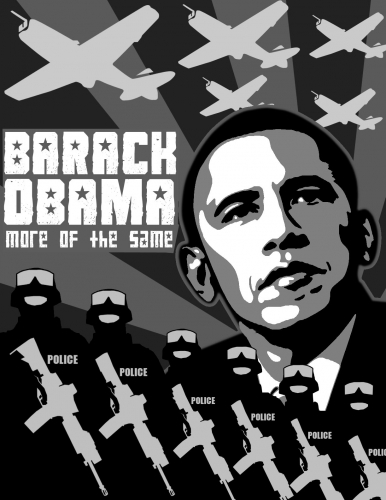 There is nothing like Putin anywhere in the West, over which presides a collection of bought-and-paid-for-puppets who report to private interest groups, such as Wall Street, the military-industrial complex, the Israel Lobby, agribusiness, and the extractive industries (energy, mining, timber).
There is nothing like Putin anywhere in the West, over which presides a collection of bought-and-paid-for-puppets who report to private interest groups, such as Wall Street, the military-industrial complex, the Israel Lobby, agribusiness, and the extractive industries (energy, mining, timber). 


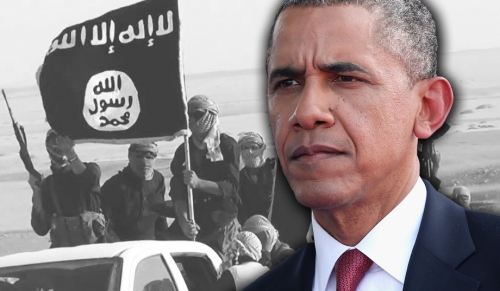

 del.icio.us
del.icio.us
 Digg
Digg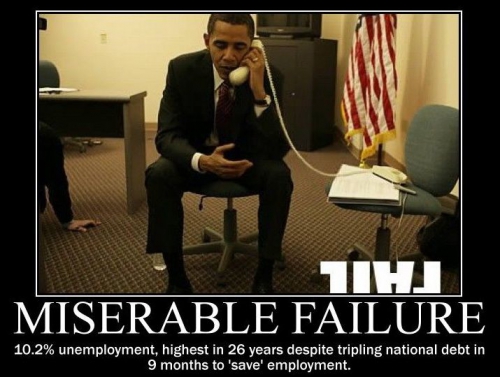




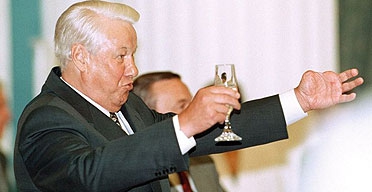 While the Clinton years of domestic prosperity saw the US economy achieve the rarity of a budget surplus, the citizens of its erstwhile antagonist were (probably with the exception of
While the Clinton years of domestic prosperity saw the US economy achieve the rarity of a budget surplus, the citizens of its erstwhile antagonist were (probably with the exception of 
 There are three key elements in the organization’s lobbying strategy to denigrate Russia and promote an intervention in Chechnya that serve to unmask a larger pattern behind the US foreign policy after 9/11. First, the labeling of a particular leader or government as “authoritarian” or in some other way “undemocratic” (Vladimir Putin, in this case). Second, the concept of an oppressed yet positively connoted population that strives for freedom and democracy (Chechen terrorists with
There are three key elements in the organization’s lobbying strategy to denigrate Russia and promote an intervention in Chechnya that serve to unmask a larger pattern behind the US foreign policy after 9/11. First, the labeling of a particular leader or government as “authoritarian” or in some other way “undemocratic” (Vladimir Putin, in this case). Second, the concept of an oppressed yet positively connoted population that strives for freedom and democracy (Chechen terrorists with 
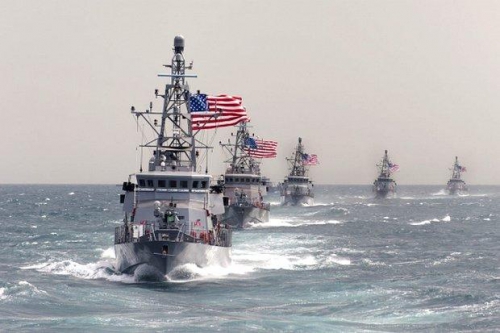
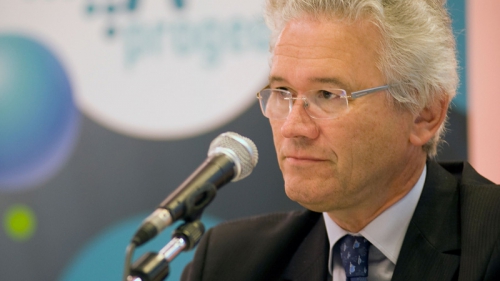
 C’est notamment l’objectif du
C’est notamment l’objectif du 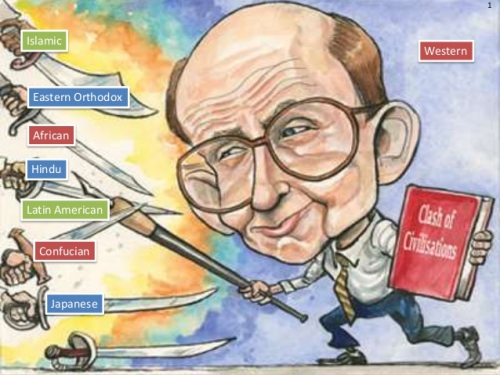
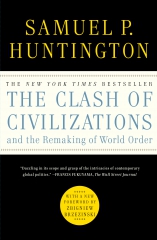 Huntington, in his 1996 book “
Huntington, in his 1996 book “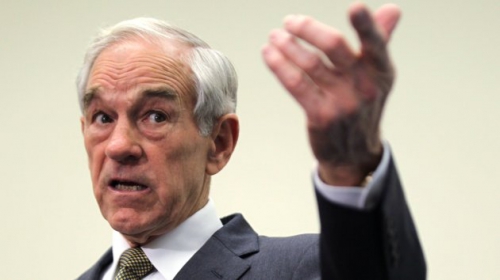
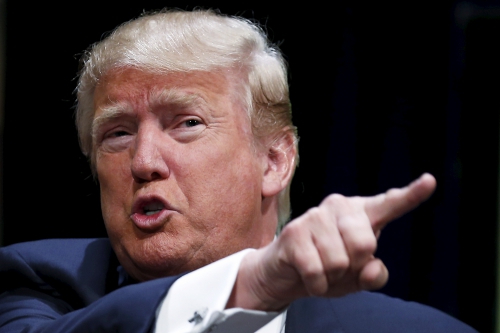
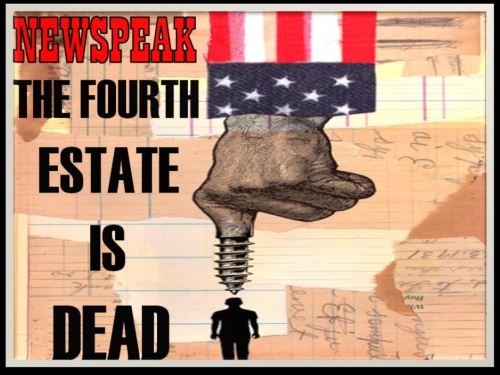
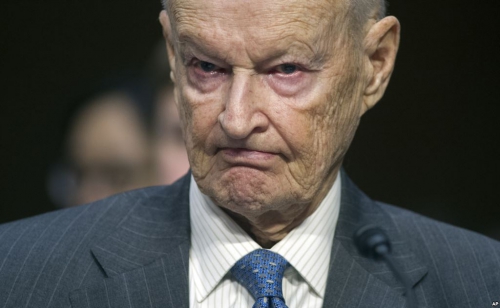
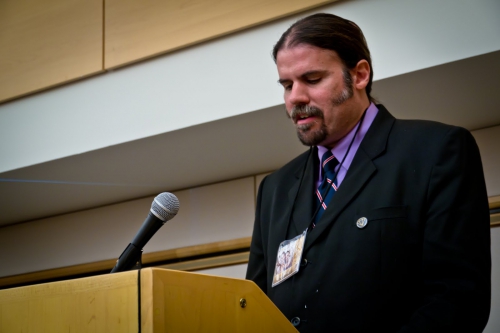
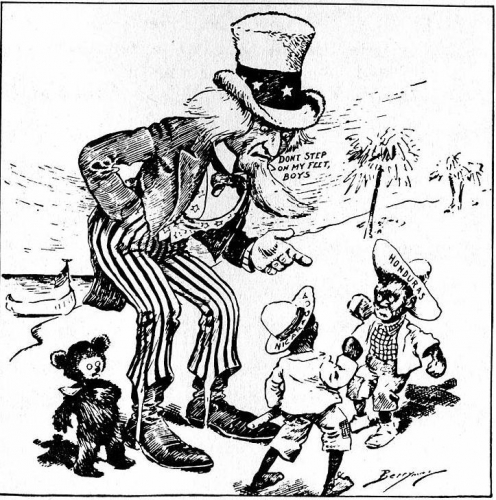
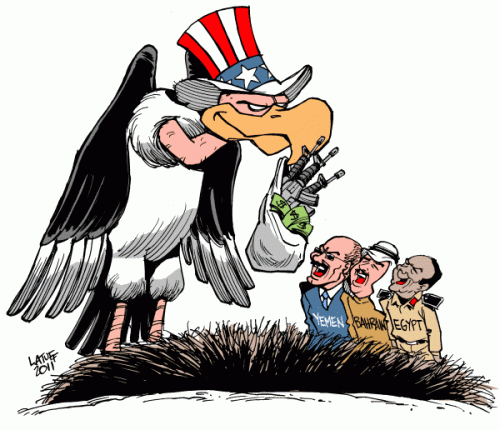
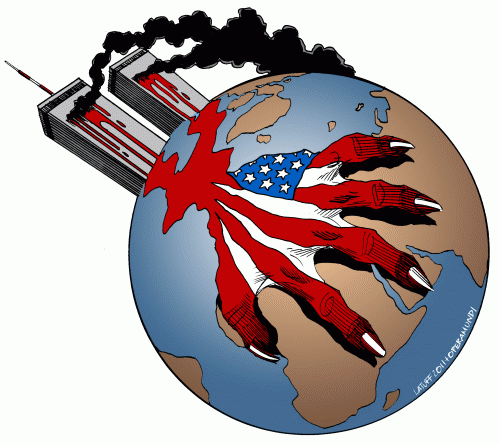
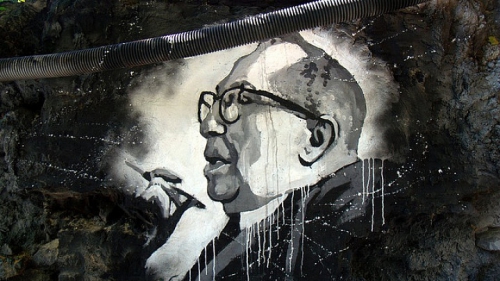
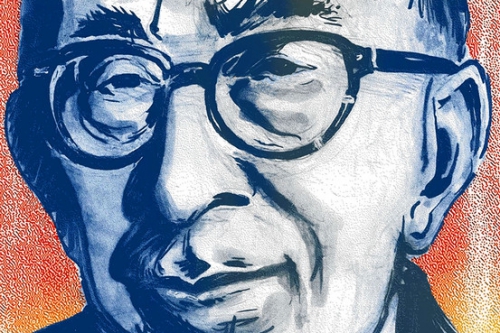
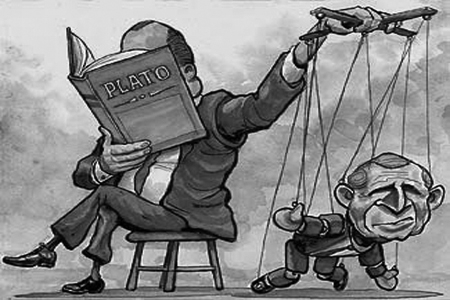





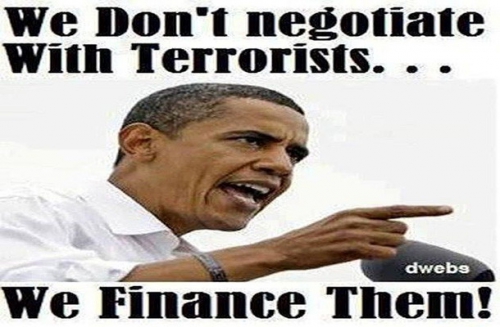

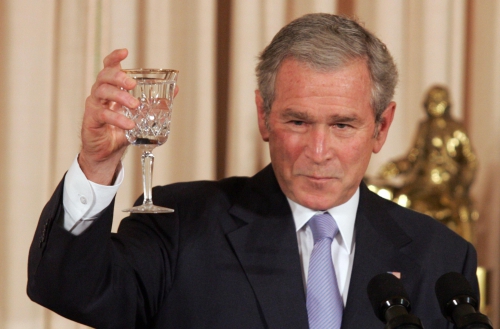
 Mais l’aristocratie américaine ne veut certainement pas que le Président, dont ils sont propriétaires, le fasse ; après tout, les Saoud leur ont toujours énormément rapporté. Comme Thalif Deen de Inter Press Service l’
Mais l’aristocratie américaine ne veut certainement pas que le Président, dont ils sont propriétaires, le fasse ; après tout, les Saoud leur ont toujours énormément rapporté. Comme Thalif Deen de Inter Press Service l’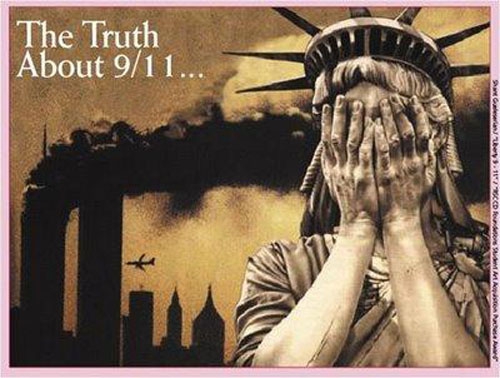
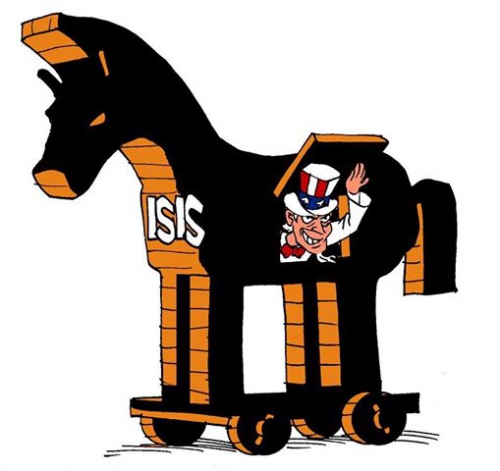
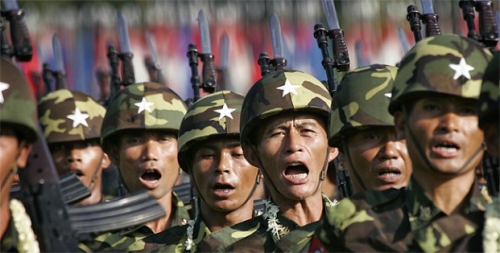
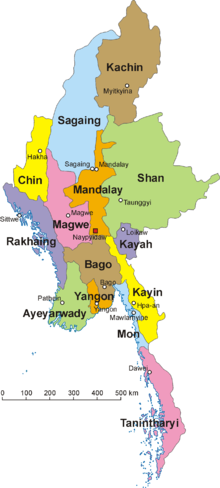 La pomposità e il clima festoso con i quali vengono accolte notizie, definite epocali, come la vittoria di leader definiti democratici ed incensati dall’opinione pubblica come salvatori dei popoli, hanno accompagnato ancora una volta le vicissitudini tortuose del trionfo elettorale di Aung San Suu Kyi, storica cenerentola della ex-Birmania, oggi Myanmar, che dopo 15 anni di prigionia politica nella sua villa ed un Nobel per la Pace ha portato ad una vittoria schiacciante la Lega nazionale per la Democrazia, con un 70% che questa volta pare essere stato accordato dal Presidente Thein Sein il quale, insieme all’alleato politico Htay Oo, ha ammesso la schiacciante sconfitta riportata dal Partito dell’Unione per la solidarietà e lo sviluppo, maggioranza uscente. Insomma la democrazia ha vinto? Non lo sappiamo, e le ragioni sono tante e tali da non consentire a tutti gli addetti ai lavori di poter confermare la notabile ondata di entusiasmo che ha seguito l’ufficializzazione di questi risultati. Madre Suu, così come definita in patria, si trova di fronte all’impedimento costituzionale di potersi candidare a Presidente del Paese, in quanto imparentata con cittadini stranieri (vedova e madre di cittadini britannici). Ciò la configura quindi come una “burattinaia”, che detto così può sembrare dispregiativo, ma è quello che si accingerà ad essere, dovendo esprimere un candidato presidente per la terna dalla quale si sceglierà il prescelto, eventualmente destinato a seguire le direttive del partito, quindi di Suu Kyi. All’impedimento personale si somma ovviamente l’ingombrante ed imprescindibile influenza della giunta militare, la quale continua a mantenere il 25% dei seggi in parlamento, a designare un candidato presidente per la terna e a nominare i Ministri degli Interni, degli Affari di confine e della Difesa.
La pomposità e il clima festoso con i quali vengono accolte notizie, definite epocali, come la vittoria di leader definiti democratici ed incensati dall’opinione pubblica come salvatori dei popoli, hanno accompagnato ancora una volta le vicissitudini tortuose del trionfo elettorale di Aung San Suu Kyi, storica cenerentola della ex-Birmania, oggi Myanmar, che dopo 15 anni di prigionia politica nella sua villa ed un Nobel per la Pace ha portato ad una vittoria schiacciante la Lega nazionale per la Democrazia, con un 70% che questa volta pare essere stato accordato dal Presidente Thein Sein il quale, insieme all’alleato politico Htay Oo, ha ammesso la schiacciante sconfitta riportata dal Partito dell’Unione per la solidarietà e lo sviluppo, maggioranza uscente. Insomma la democrazia ha vinto? Non lo sappiamo, e le ragioni sono tante e tali da non consentire a tutti gli addetti ai lavori di poter confermare la notabile ondata di entusiasmo che ha seguito l’ufficializzazione di questi risultati. Madre Suu, così come definita in patria, si trova di fronte all’impedimento costituzionale di potersi candidare a Presidente del Paese, in quanto imparentata con cittadini stranieri (vedova e madre di cittadini britannici). Ciò la configura quindi come una “burattinaia”, che detto così può sembrare dispregiativo, ma è quello che si accingerà ad essere, dovendo esprimere un candidato presidente per la terna dalla quale si sceglierà il prescelto, eventualmente destinato a seguire le direttive del partito, quindi di Suu Kyi. All’impedimento personale si somma ovviamente l’ingombrante ed imprescindibile influenza della giunta militare, la quale continua a mantenere il 25% dei seggi in parlamento, a designare un candidato presidente per la terna e a nominare i Ministri degli Interni, degli Affari di confine e della Difesa.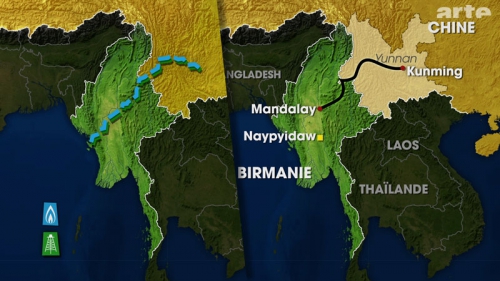
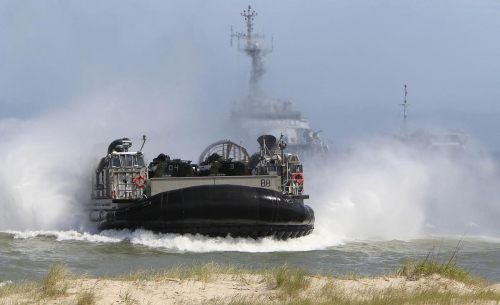


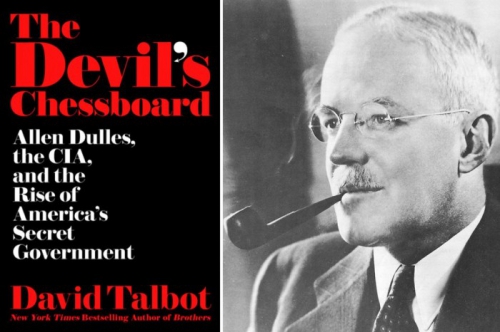
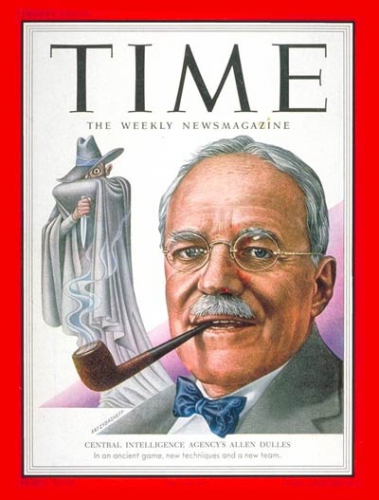 De Marenches and the Safari Club certainly had a clear motive to oust Carter: They blamed him for allowing one of their charter members, the Shah, to fall from power. But whether de Marenches’ claims were true or not, we do know that history unfolded exactly as he and the Safari Club would have wished. The hostages weren’t released until Reagan was inaugurated, Reagan appointed Casey director of the CIA, and from that point forward America’s intelligence “community” was back in business.
De Marenches and the Safari Club certainly had a clear motive to oust Carter: They blamed him for allowing one of their charter members, the Shah, to fall from power. But whether de Marenches’ claims were true or not, we do know that history unfolded exactly as he and the Safari Club would have wished. The hostages weren’t released until Reagan was inaugurated, Reagan appointed Casey director of the CIA, and from that point forward America’s intelligence “community” was back in business.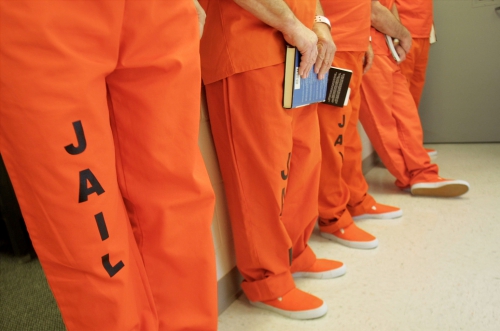
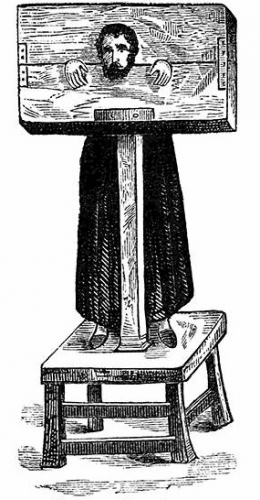 Schools are no longer places of learning. They are places of punishment. Kids are punished for the most absurd reasons. Nothing more than behaving as a child brings on punishment. As Henry Giroux has written, schools have become places of control, repression, and punishment.
Schools are no longer places of learning. They are places of punishment. Kids are punished for the most absurd reasons. Nothing more than behaving as a child brings on punishment. As Henry Giroux has written, schools have become places of control, repression, and punishment.

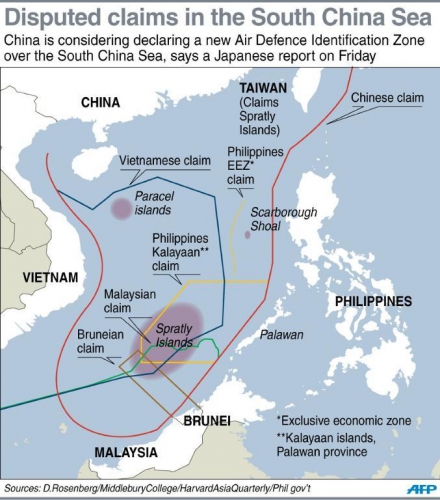

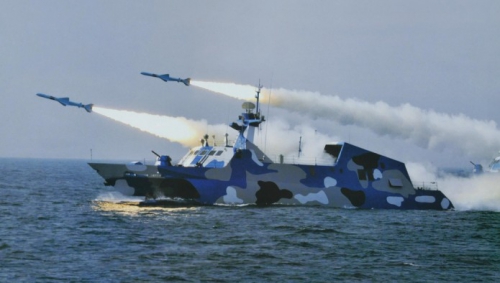
The war on terror, that campaign without end launched 14 years ago by George Bush, is tying itself up in ever more grotesque contortions. On Monday the trial in London of a Swedish man, Bherlin Gildo, accused of terrorism in Syria, collapsed after it became clear British intelligence had been arming the same rebel groups the defendant was charged with supporting.
The prosecution abandoned the case, apparently to avoid embarrassing the intelligence services. The defence argued that going ahead with the trial would have been an “affront to justice” when there was plenty of evidence the British state was itself providing “extensive support” to the armed Syrian opposition.
That didn’t only include the “non-lethal assistance” boasted of by the government (including body armour and military vehicles), but training, logistical support and the secret supply of “arms on a massive scale”. Reports were cited that MI6 had cooperated with the CIA on a “rat line” of arms transfers from Libyan stockpiles to the Syrian rebels in 2012 after the fall of the Gaddafi regime.
Clearly, the absurdity of sending someone to prison for doing what ministers and their security officials were up to themselves became too much. But it’s only the latest of a string of such cases. Less fortunate was a London cab driver Anis Sardar, who was given a life sentence a fortnight earlier for taking part in 2007 in resistance to the occupation of Iraq by US and British forces. Armed opposition to illegal invasion and occupation clearly doesn’t constitute terrorism or murder on most definitions, including the Geneva convention.
But terrorism is now squarely in the eye of the beholder. And nowhere is that more so than in the Middle East, where today’s terrorists are tomorrow’s fighters against tyranny – and allies are enemies – often at the bewildering whim of a western policymaker’s conference call.
For the past year, US, British and other western forces have been back in Iraq, supposedly in the cause of destroying the hyper-sectarian terror group Islamic State (formerly known as al-Qaida in Iraq). This was after Isis overran huge chunks of Iraqi and Syrian territory and proclaimed a self-styled Islamic caliphate.
The campaign isn’t going well. Last month, Isis rolled into the Iraqi city of Ramadi, while on the other side of the now nonexistent border its forces conquered the Syrian town of Palmyra. Al-Qaida’s official franchise, the Nusra Front, has also been making gains in Syria.
Some Iraqis complain that the US sat on its hands while all this was going on. The Americans insist they are trying to avoid civilian casualties, and claim significant successes. Privately, officials say they don’t want to be seen hammering Sunni strongholds in a sectarian war and risk upsetting their Sunni allies in the Gulf.
A revealing light on how we got here has now been shone by a recently declassified secret US intelligence report, written in August 2012, which uncannily predicts – and effectively welcomes – the prospect of a “Salafist principality” in eastern Syria and an al-Qaida-controlled Islamic state in Syria and Iraq. In stark contrast to western claims at the time, the Defense Intelligence Agency document identifies al-Qaida in Iraq (which became Isis) and fellow Salafists as the “major forces driving the insurgency in Syria” – and states that “western countries, the Gulf states and Turkey” were supporting the opposition’s efforts to take control of eastern Syria.
Raising the “possibility of establishing a declared or undeclared Salafist principality”, the Pentagon report goes on, “this is exactly what the supporting powers to the opposition want, in order to isolate the Syrian regime, which is considered the strategic depth of the Shia expansion (Iraq and Iran)”.
Which is pretty well exactly what happened two years later. The report isn’t a policy document. It’s heavily redacted and there are ambiguities in the language. But the implications are clear enough. A year into the Syrian rebellion, the US and its allies weren’t only supporting and arming an opposition they knew to be dominated by extreme sectarian groups; they were prepared to countenance the creation of some sort of “Islamic state” – despite the “grave danger” to Iraq’s unity – as a Sunni buffer to weaken Syria.
That doesn’t mean the US created Isis, of course, though some of its Gulf allies certainly played a role in it – as the US vice-president, Joe Biden, acknowledged last year. But there was no al-Qaida in Iraq until the US and Britain invaded. And the US has certainly exploited the existence of Isis against other forces in the region as part of a wider drive to maintain western control.
The calculus changed when Isis started beheading westerners and posting atrocities online, and the Gulf states are now backing other groups in the Syrian war, such as the Nusra Front. But this US and western habit of playing with jihadi groups, which then come back to bite them, goes back at least to the 1980s war against the Soviet Union in Afghanistan, which fostered the original al-Qaida under CIA tutelage.It was recalibrated during the occupation of Iraq, when US forces led by General Petraeus sponsored an El Salvador-style dirty war of sectarian death squads to weaken the Iraqi resistance. And it was reprised in 2011 in the Nato-orchestrated war in Libya, where Isis last week took control of Gaddafi’s home town of Sirte.
In reality, US and western policy in the conflagration that is now the Middle East is in the classic mould of imperial divide-and-rule. American forces bomb one set of rebels while backing another in Syria, and mount what are effectively joint military operations with Iran against Isis in Iraq while supporting Saudi Arabia’s military campaign against Iranian-backed Houthi forces in Yemen. However confused US policy may often be, a weak, partitioned Iraq and Syria fit such an approach perfectly.
What’s clear is that Isis and its monstrosities won’t be defeated by the same powers that brought it to Iraq and Syria in the first place, or whose open and covert war-making has fostered it in the years since. Endless western military interventions in the Middle East have brought only destruction and division. It’s the people of the region who can cure this disease – not those who incubated the virus.